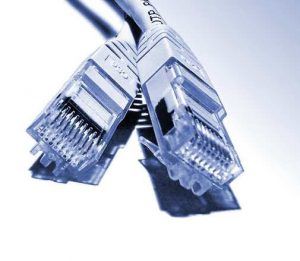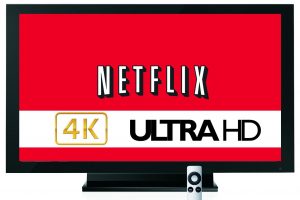 No sooner than one standard is ratified another is proposed. In fact, as is often the case, standards are proposed one or two iterations before the current ratification. Gigabit, 10G, 40G, 100G and even some odd ones in between such as 802.3by (25Gbps) and 802.3cd (50Gbps). All there or thereabouts standards, each one surpassing the previous. But how much of this is just engineers finding something to do with their time, and how much of it is necessity? I’m not here today to discuss the individual standards and the finer details of the IEEE process, but rather question how much of this work is really needed by the people who ultimately use the products born from the standards?
No sooner than one standard is ratified another is proposed. In fact, as is often the case, standards are proposed one or two iterations before the current ratification. Gigabit, 10G, 40G, 100G and even some odd ones in between such as 802.3by (25Gbps) and 802.3cd (50Gbps). All there or thereabouts standards, each one surpassing the previous. But how much of this is just engineers finding something to do with their time, and how much of it is necessity? I’m not here today to discuss the individual standards and the finer details of the IEEE process, but rather question how much of this work is really needed by the people who ultimately use the products born from the standards?
Of course, having the “best possible connection” and the “fastest speeds available” all sound great to us. Our ISPs have been driving those exact catchphrases into our ears and eyes for years now, subliminally programming our brains and desires, in some opinions. But when it comes to our data networks – the cables, switches and wireless access points that connect our PCs, tablets, phones and laptops together – do we really need to keep up with the Jones’s next door, or will our existing 100Mbps Fast Ethernet or Gigabit Ethernet that are commonplace in today’s homes and offices suffice?
 I think there are two sides of the argument here – from the user’s perspective and from the provider’s perspective. I’ll tackle the provider first as it is the most clear-cut case. Yes, speed matters. As much of it as possible, please! Service providers, whether that be DropBox for cloud storage, Microsoft’s XBox Live platform for online gaming, Netflix for content delivery, these providers are serving ever increasing numbers of users with larger and larger volumes of content every day. Video streaming in 4K, 50GB game downloads and whole PC backups are commonplace in today’s world, and our service providers need to shift that data about as quickly as possible to provide users with a satisfactory service. A case for 100G and more is valid here.
I think there are two sides of the argument here – from the user’s perspective and from the provider’s perspective. I’ll tackle the provider first as it is the most clear-cut case. Yes, speed matters. As much of it as possible, please! Service providers, whether that be DropBox for cloud storage, Microsoft’s XBox Live platform for online gaming, Netflix for content delivery, these providers are serving ever increasing numbers of users with larger and larger volumes of content every day. Video streaming in 4K, 50GB game downloads and whole PC backups are commonplace in today’s world, and our service providers need to shift that data about as quickly as possible to provide users with a satisfactory service. A case for 100G and more is valid here.
Onto end users, me and you if you will. Do you or I have any need for anything more than Gigabit? I have an internet connection at home that provides slightly less than 100Mbps downstream, small to medium sized offices often have the same. So as far as web surfing, gaming and video streaming go, then no, Gigabit is plenty. I don’t need any more, I could even make do with less – 100Mbps Fast Ethernet would not have any noticeable impact on my experience. I often transfer files to a NAS drive too, and average around 12-15MB/s transfer rate. That is around 100Mbps (MB/s to Mbps is a ratio of 1:8) – so again I could drop down to 100Mbps Fast Ethernet and not notice any tangible difference.
I accept a large office environment is slightly different, with enterprise servers able to dish out data faster, so Gigabit speeds to the desk would be preferred in this instance, and maybe 10G at the core. And you know what, for the small difference in cost of hardware you may as well stick with Gigabit at home too if you have it. But I wouldn’t race for the shops if you don’t and still have 100Mbps devices, at this time. Which begs the question, and the reason I even began writing this post; why are companies, like Asus for example, building and selling 10G home network products? It is totally unnecessary, it won’t improve online gaming (these products are often sold under “pro-sumer”, or hardcore gaming ranges), it won’t improve local access speeds as I doubt many, if any, home users have PCs or laptops with 10G capable NICs, and what’s more, how many homes are wired with Cat6 or better cables – the minimum required for 10G Ethernet?
So I conclude, in a home or office environment, this is not necessity. We don’t need faster and faster speeds – standards from 1999 (802.3ab Gigabit Ethernet precisely) are still valid and viable options today. But for large offices, data centres and service providers – then yes, engineers at your stations please. And all the time these geniuses come up with faster standards, Advance will be sure to keep pace with the products needed to support them. Bring on 802.3bs!
